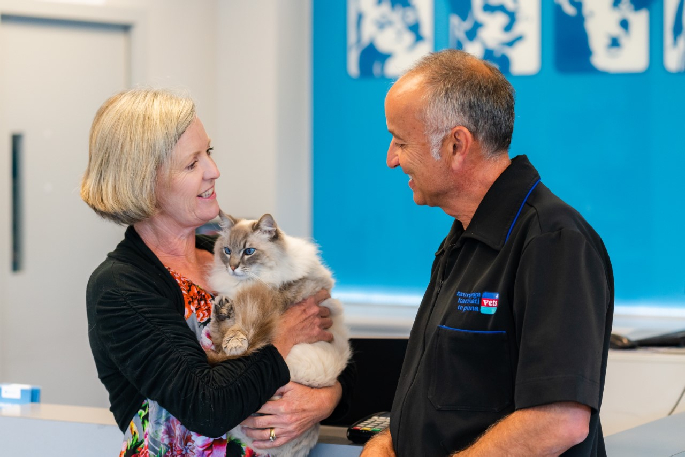At a national level, the veterinary sector is approaching a crisis due to severe staff shortages.
Many veterinarians in New Zealand are working long hours, with some concerns being raised about the well-being of those in the field.
Contrary to the pattern across the country, Tauranga Vets managing director David McDonnell says they are coping well with this increased demand, which has come as a result of multiple factors.
'Over the last two years, we've seen about a 20 per cent increase in activity, which as resulted in an unprecedented level of demand.
'This is due to the growth of the Tauranga area and the increasing numbers of people owning pets over the lockdown periods where people were isolating.”
'People are also focusing on more basic pleasures in life rather than travelling during this Covid-19 period, such as gardening, pets and ‘do it yourself' projects, from what we've seen all of those industries have done really well.”
David says the high level of demand is something that can be seen at a national and international level, through social media groups and the New Zealand Veterinary Association.
However, David says that the Bay of Plenty being an attractive place to work has enabled Tauranga Vets to keep up with the extremely high levels of demand.
'We were lucky enough to hire a few more people over the last two years. We are fortunate that the Tauranga area is a desirable option to people who are looking for work.
'Because of this, we have managed to be okay despite this extreme shortage with high demands across the country, while other areas have not been so fortunate.”
David says the closed borders combined with New Zealand not producing enough vets is another reason for the extreme demands on the veterinary sector.
'There's only one vet school at Massey University, and there's lots of opportunities for veterinarians to work in other areas, not necessarily in the clinical area.”
'They can apply their skills in other areas such as food hygiene advisory, welfare, or industry research. This doesn't necessarily fit into where the demands are, so there is a shortfall of supply.”
'Places that are more remote are struggling most, as those areas are often isolated and find it hard to attract and retain employees.”
David also mentions that the agriculture and produce sector has also grown as a result of Covid-19, and the veterinary service on this level is still an unmet need.
'It's not just pet ownership demands in the urban areas, it's the agricultural commodities sector that have also increased their demands on veterinarians.”
'We've staffed up in the paraprofessional area to take some of the load, and we're trying to leverage our veterinarians time a bit more and take care of them."
"We're locally owned, so we've been able to manage things on the ground, and it helps that people want to work where there is a good rota that is not too demanding."
'The overseas corporates and those who are not locally owned are probably struggling a lot more with filling the vacancies.”



1 comment
A good place to start is to train MORE Vets!!
Posted on 30-03-2022 11:57 | By jed
The veterinarian industry (as well as medical doctor) could well be accused of keeping their rates high by placing caps on student numbers. It is very difficult to get into vet school... not because we have a lack of intelligent people, but because the NZ Veterinary authorities artificially limit student numbers. Same applies for Medical doctors, we really need a third medical school, and possibly 2 more veterinary schools.
Leave a Comment
You must be logged in to make a comment.